
 Flash News
Flash News
NAME/ The assets of the businessman in Gjirokastra are seized! How Berisha denounced him in 2019
Hostage taking in Tirana, 40-year-old man forcibly taken into car
Car catches fire in Tirana
SPAK announces the claim for "Sterilization", seeks 10-year sentences for Klodian Rjepaj and Ilir Rrapaj
Gunfight at the Institute, 7 people involved, one of them arrested
What is known about the weapons that Serbia has banned from exporting to Israel?
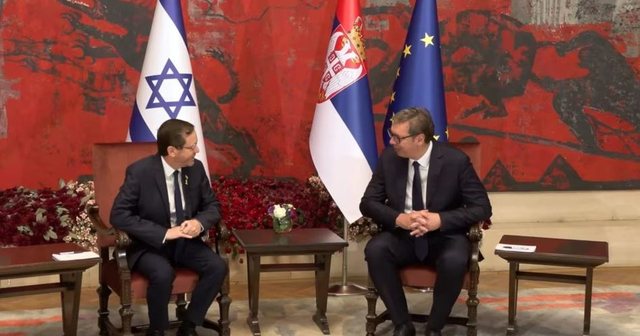
Exports have been suspended, but it is not known how much and what has been exported. This statement refers to the decision announced two days ago by the President of Serbia, Aleksandar Vučić, and confirmed by the Ministry of Defense of this country. Serbia is banning the export of ammunition, Vučić said, emphasizing exports to Israel - the state that is at the center of the current conflict in the Middle East.
Neither Vučić nor the Ministry of Defense has provided details on what weapons and military equipment Serbia has exported to Israel in recent years. Official reports from the competent Ministry of Trade on the export of weapons and military equipment from Serbia have not been published for several years, although according to the Law on the Export and Import of Weapons and Military Equipment, they must be published.
Serbia's Ministry of Internal and Foreign Trade issues permits for the import and export of weapons and military equipment. Radio Free Europe has requested information on permits related to Israel several times in recent months, using freedom of information requests. However, this data has not been provided.
What is known about arms exports?
However, some information regarding arms exports to Israel has become available during the investigation into the company Romax-trade, which is linked to the procurement of the so-called sonic cannon - an LRAD device, allegedly used in Belgrade during student protests on March 15 this year. The Ministry of Internal and Foreign Trade has issued two export licenses to Romax-trade for Israel, in 2021 and 2022.
The weapons in question are worth seven million euros. They are classified as “category four of the National Control List,” which includes: bombs, torpedoes, rockets, projectiles and explosive devices. The weapons, for which Romax has obtained export licenses, are produced by the state-owned defense industry factory Krusik, from Valeva, and part of this work, worth 2.2 million euros, was carried out during 2021, Serbia’s Ministry of Internal and Foreign Trade told Radio Free Europe in April this year.
The importer of Krushik's goods is the Israeli company Ispra, which states on its website that it specializes in the production of "crowd management" equipment. Radio Free Europe/Radio Liberty asked Ispra for what purpose the weapons were purchased from Krushik - whether they were purchased for the needs of the Israeli army or some other institution - but, as of the publication of this article, it had not received a response.
What is the role of the Ispra company from Israel?
In 2021 and 2022, the company Romax-trade received permission to import classified products, such as aircraft, chemical and biological agents, from the Israeli manufacturer Ispra. In three procurements, the Serbian police were listed as the end user. The Minister of Internal Affairs of Serbia at the time was Aleksandar Vulin.
The Israeli company Ispra is known for its Cyclone system, or tear gas drones that release tear gas from the air. According to media reports, this system has been used against protesters in Gaza, as well as during anti-corruption protests in Kenya.
Ministry of Trade without response
The explosive devices from Krusik, worth seven million euros, are just a small part of the Serbian defense industry’s exports to Israel. According to an investigation by BIRN and the Israeli newspaper Haaretz, seven Israeli military aircraft flew to Serbia from October 2023 to June 2024. These flights were related to the export of weapons from Serbia to Israel worth 15.7 million euros.
Radio Free Europe/Radio Liberty journalists in Belgrade have been trying to obtain accurate data on the export of weapons and military equipment from the Serbian defense industry to Israel, but the competent Ministry of Trade has not responded for months.
The ministry rejected the initial request in mid-October last year, saying that “documents, data and information related to the import and export of weapons and military equipment are marked as confidential.” A decision by the Commissioner for Information of Public Importance ordered the Ministry of Internal and Foreign Trade to act on the request – which it has not done to date.
Meanwhile, the Ministry of Internal and Foreign Trade has also been asked to issue a decision on determining the confidentiality of data, more specifically documents indicating why import and export licenses are marked as 'confidential'. However, the ministry has not responded to this request either, which was sent at the end of November 2024.
What other questions await answers?
Even after Vučić announced the unexpected decision, the Ministry of Internal and Foreign Trade - responsible for the procedure for obtaining a license for the export of weapons and military equipment - has not responded.
Radio Free Europe asked him when this decision was implemented, and what is happening with deliveries from previously signed contracts.
There were also no answers to questions about a cargo plane that flew from Belgrade to Israel on Tuesday - a day after the export ban was announced. /REL
Latest news

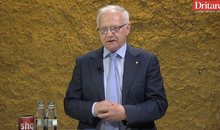
NATO spending to increase by 5%, diplomat: Aims to pull economies out of crisis
2025-06-25 22:32:28

Djegia nga dielli, ja disa mënyra si ta trajotni në kushte shtëpie
2025-06-25 21:56:19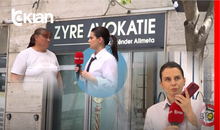

Rama: NATO Summit in 2027 will be held in Tirana
2025-06-25 21:36:35
What is known about the weapons that Serbia has banned from exporting to Israel?
2025-06-25 21:23:19


The new war front? Not in the Middle East, but in SPAK!
2025-06-25 20:40:02

Gjendet e vdekur 56-vjeçarja shqiptare në Greqi! Nënë e 3 fëmijëve
2025-06-25 20:21:03
PHOTO/ Car falls off bridge on Peqin-Elbasan axis
2025-06-25 20:11:16

Trump at NATO summit: In recent weeks we have dealt with Kosovo and Serbia
2025-06-25 19:47:10



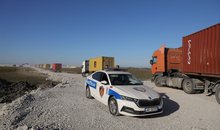

Trump: US to meet with Iran next week, but nuclear deal not necessary
2025-06-25 18:15:22




NATO's defense plan, what will change for Albania?
2025-06-25 16:42:07
Bayern loans Albanian talent to German team
2025-06-25 16:32:00
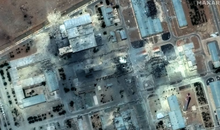
Kremlin: US and Iran disagree on damage caused by attacks
2025-06-25 16:13:55
11 maji/ KQZ vulos rezultatin, u jep mandatin deputetëve për 4 qarqe të vendit
2025-06-25 16:00:32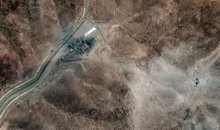
Iran: Nuclear facilities suffered severe damage from US airstrike
2025-06-25 15:49:38
Hostage taking in Tirana, 40-year-old man forcibly taken into car
2025-06-25 15:35:51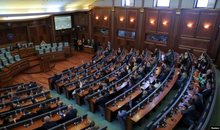
Kosovo/ The constitution of the Assembly fails for the 37th time
2025-06-25 15:24:28
Car catches fire in Tirana
2025-06-25 15:06:53
5 super healthy foods you should add to your diet
2025-06-25 14:57:48
TikTok returns to Albania, one-year ban quietly lifted after three months
2025-06-25 14:49:14


Gunfight at the Institute, 7 people involved, one of them arrested
2025-06-25 14:21:10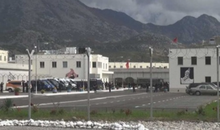
Convict dies in Lezha prison
2025-06-25 14:08:16

ACE Closes Filma24, the Movie Piracy Giant in Albania
2025-06-25 13:44:37

SPAK postpones the investigation against Ahmetaj for the fourth time
2025-06-25 13:12:42

Communication services in Albania cost more than the EU average
2025-06-25 12:55:50
How to choose the right perfume scent according to your personality
2025-06-25 12:44:36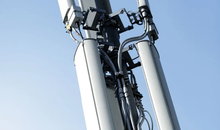
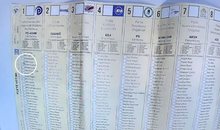




Today is the 37th attempt to constitute the Assembly.
2025-06-25 11:34:23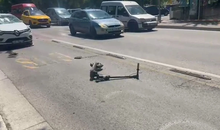
Accident in Tirana, taxi hits two children with a wheelchair
2025-06-25 11:19:05
Some reasons why gossip isn't as toxic as you think
2025-06-25 11:07:51

Selling dope in nightclubs, 33-year-old arrested in Tirana
2025-06-25 10:45:25
The Supreme Court rejects the appeal of Jamarbër Malltez
2025-06-25 10:26:58
The warned cyberattack on Tirana Municipality brings back security concerns
2025-06-25 10:19:43
Iranian parliament votes to suspend cooperation with UN nuclear watchdog
2025-06-25 10:03:02
Bosnian fraudster arrested, wanted in Germany
2025-06-25 09:53:10
May 11/ Nuri: The vote 'died' before it was cast in the box
2025-06-25 09:42:02
Men with big bellies are at risk of suffering from this problem
2025-06-25 09:37:26

Today, around 28,000 9th grade students are taking the math exam.
2025-06-25 09:19:14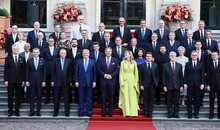
NATO arms itself against potential threats from Russia
2025-06-25 09:03:09
Tourists don't come, Albanians leave!
2025-06-25 08:59:08
TNT explosion in Vlora
2025-06-25 08:38:41
Tourism/ Kosovo "flees" after visa waiver, Poles and Spaniards "get upset"
2025-06-25 08:22:43
Horoscope, what do the stars have in store for you today?
2025-06-25 08:09:54
Ditë me diell, parashikimi i motit, si do të ndryshojnë temperaturat
2025-06-25 07:59:33
Morning Post/ In 2 lines: What mattered yesterday in Albania
2025-06-25 07:45:27


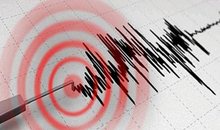
Earthquake tremors felt again in Tirana
2025-06-24 22:11:53

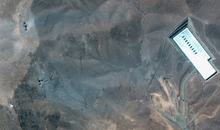
US intelligence: Attacks on Iran did not destroy nuclear plants
2025-06-24 21:30:31
Accident on the Fier-Cekan axis, 3 injured
2025-06-24 21:16:32



Cancer season, what is expected to happen for each zodiac sign
2025-06-24 20:15:54


After ceasefire, Iranian airspace partially reopens to international flights
2025-06-24 19:47:10
Oil prices fall after Israel-Iran ceasefire reached
2025-06-24 19:26:52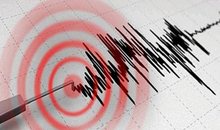


Will Iran participate in the 2026 World Cup being held in the USA?
2025-06-24 18:46:36
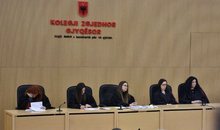

BIRN: Veliaj hires British law firm for defense! Huge sum revealed
2025-06-24 18:20:16
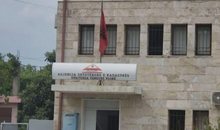

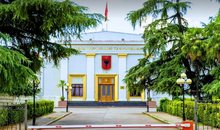

Accident on "Durrës Road" in Tirana, 3 cars collide
2025-06-24 16:52:05
